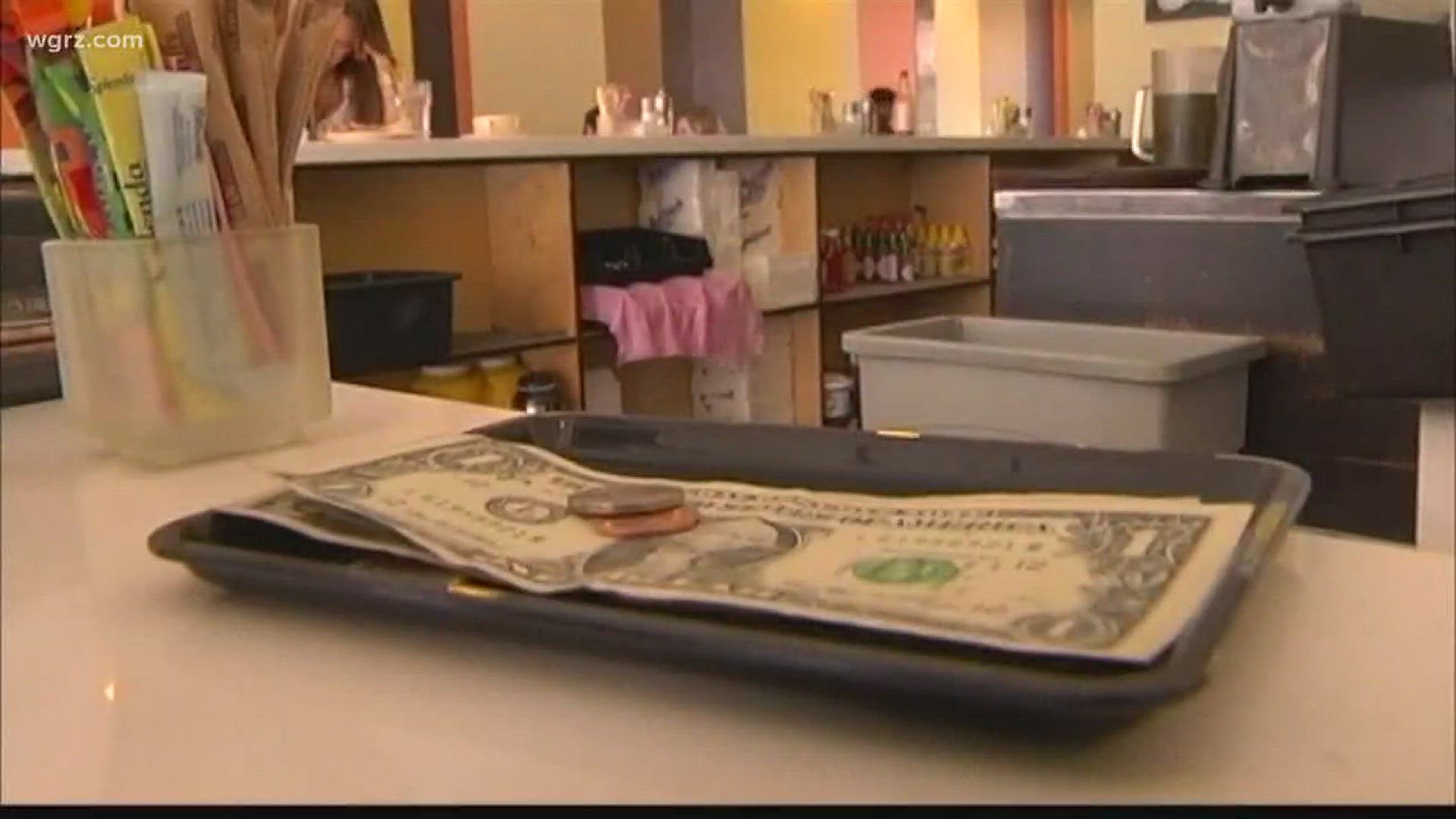ALBANY - Tipped workers earning less than the minimum hourly wage could soon become a thing of the past in New York.
Gov. Andrew Cuomo announced Sunday he was directing the commissioner of labor to hold public hearings to look into the possibility of getting rid of the tipped credit in the state.
"At the end of day, this is a question of basic fairness. In New York, we believe in a fair day's pay for a fair day's work and that all workers deserve to be treated with dignity and respect," Cuomo said in a statement. "There should be no exception to that fairness and decency.”
The state Department of Labor will hold public hearings next year and gather information from workers and employers on the possibility of eliminating the tip credit.
The minimum hourly wage in New York is $9.70 per hour upstate; $10 in Westchester County and Long Island; and $11 in New York City for employers with 11 or more workers.
Tipped food-service workers earn $7.50 per hour across New York before tips, while other tipped service employees, like some hotel workers and car-wash employees, earn $8.10 per hour before tips upstate and $8.35 an hour in Westchester.
Tip credit is the difference between what a tipped worker is paid and the minimum wage. The credit saves employers' money when the amount that workers are earning in tips is equal to or above the minimum wage.
But when a tipped employee is earning less than minimum with their hourly wages combined with their tips, then his or her employer must pay the difference so the employee is still earning at least minimum wage.
Cuomo, though, said some employers skirt the law, and it can lead to workers — particularly women and minorities — being exploited.
In 2014, for example, the state hit a New York City car wash chain for $4 million in fines for violating wage laws.
Cuomo said some tipped employees are hesitant to come forward with pay issues because they rely on tips for their living.
The review of the tipped-wage law will be part of Cuomo's State of the State address Jan. 3 in Albany.
The measure, though, drew criticism from the state Restaurant Association and comes after the state in recent years has increased the tipped wage and the minimum wage — which will hit $15 an hour in New York City at the end of 2018.
Eliminating the tip credit would cost employers, and that could, in turn, raise prices, the Restaurant Association said. Also, if employees are being paid a higher minimum wage, the businesses could decide to cut staff hours or their workforces, the group said.
“Restaurants will be forced to make up the difference, siphoning resources away from non-tipped workers (cooks, dishwashers), replacing service personnel with tablets and other technology, or be forced to make other cuts,” Melissa Fleischut, the group's president, said in a statement. "By current New York state law, all hospitality workers who receive tips are guaranteed to make the full minimum wage. It is patently false should anyone claim otherwise.”
--
In Western New York, voices on opposing sides of the debate made their stances clear about the possible elimination of the tip credit.
Rev. Kirk Laubenstein, the executive director of the Coalition for Economic Justice, said it's about time the state forced employers to pay tipped workers a full minimum wage base salary. He also rejected notions by business leaders who claimed an increase in base salaries would hurt their business models.
"Workers need to get paid a living wage, and this is one step closer to actually getting them there," Laubenstein said. "The owning class always says the sky will fall whenever wages increase. The sky still hasn't fallen. The sky will not fall now."
On the other side of the spectrum, State Senator Patrick Gallivan (R-Elma) said he still needs to review the full proposal, but he generally feels an increase in base wages would harm employers and in turn their employees.
"The more we put impediments in front of employers, the harder and harder it is for businesses to be successful. And the harder and harder it is for them to create opportunities for the people we care about," Gallivan said. "We've seen the evidence, that it leads to automation, reduces jobs."

